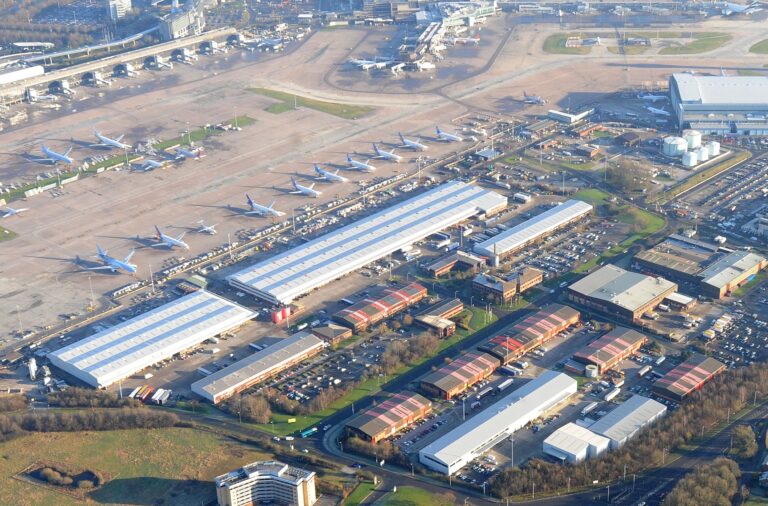Manchester City Council has granted planning permission to Columbia Threadneedle Investments for the development of three new logistics units at the World Freight Terminal, Manchester Airport, totalling around 85,000ft2.
The new buildings, measuring roughly 36,000ft2, 27,000ft2 and 21,000ft2, will replace an existing obsolete unit, responding to the increasing freight traffic coming through Manchester Airport and providing further opportunities for the regional export market. The increased capacity will also help to serve the booming e-commerce market across the north-west and beyond.
Once complete, the assets will offer state-of-the-art, Net Zero Carbon, Grade A warehousing facilities, including offices at mezzanine level, loading yards and separate car parks. Architect RPS and planning consultant Avison Young advised on the plans with JLL and Knight Frank retained on the leasing.
Columbia Threadneedle Investments acquired the site last year from Manchester Airports Group, as part of a wider portfolio of assets.
“Gaining planning approval for the site is a major milestone for us in our journey towards creating a high-quality, sustainable portfolio of logistics assets,” commented Samantha Hadland, Columbia Threadneedle. “We have ambitious plans for the World Freight Terminal and are pleased to be able to bring much-needed warehousing to the region.”
“Demand for well-located, good quality industrial space has been strong across Greater Manchester for several years now and we see no signs of that slowing down,” added Robert Kos, Director Industrial & Logistics at JLL. “These three new assets are ideally situated and will generate significant interest.
“Manchester Airport offers a global gateway to the North of England, so the addition of new warehousing is particularly important for helping to drive trade to the city region and growth for the businesses located here.”
“When finished, the properties will offer a high specification, versatile freight forwarding and logistics space, designed specifically to enable efficient and rapid transit of goods direct to and from the airport and the wider motorway network,” noted Sam Royle, Knight Frank.







